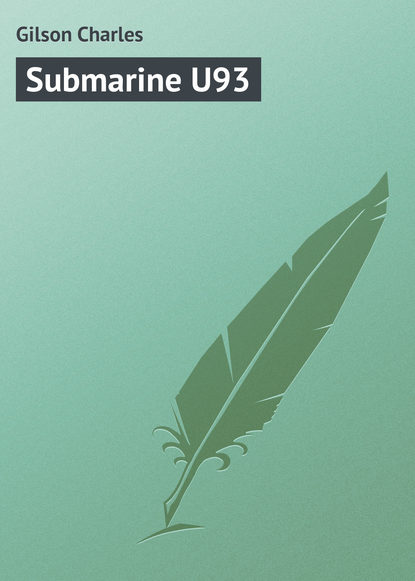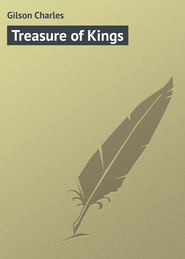По всем вопросам обращайтесь на: info@litportal.ru
(©) 2003-2025.
✖
Submarine U93
Настройки чтения
Размер шрифта
Высота строк
Поля
"Come in," said Crouch. "Come in."
Jimmy, recognizing that he was about to take the bull by the horns, screwed up all his courage, took in a deep breath, and entered the room.
The moment he set eyes upon the boy, Crouch set his brows in a frown.
"You!" he exclaimed. "I thought I gave definite orders that on no account were you to attempt to see me."
Jimmy, who had intended to maintain a bold front throughout the interview, found all his resolution vanish before the single piercing eye of Captain Crouch. He took another step forward, and brought both his hands together with the gesture of one who begs for mercy.
"Please, hear me, sir," he pleaded. "I have something of the utmost importance to tell you. I declare that I will speak nothing but the truth."
"Do you mean," said Crouch, "that you have come at this hour of the night to confess that you are a German spy?"
"I mean nothing of the sort, sir. I am innocent."
Crouch turned upon his heel with a gesture of impatience.
"You mean to lie," said he; "you mean to lie to the end. You belong to a breed of liars."
"I come of English blood, sir," answered Jimmy. "My family has a good name."
The boy was going on to speak of "Swiftsure Burke," and the Admiral's gallant deeds, when Crouch took him up in a voice of thunder that must have been audible to the officer on watch upon the bridge.
"I care nothing for your pedigree," said he; "for ought I know you may be descended from Peter the Hermit. If you've got the good name you say, you can clear it in a public court, as soon as ever you are set ashore in England."
"Sir," said Jimmy, "the clearing of my good name will not help to save your ship."
Crouch looked up.
"What d'ye mean?" he asked.
"I mean, sir, that I am innocent, as I have said, but there is one on board this ship who is, in truth, a spy."
"Who?" asked the captain.
"The ship's carpenter," said Jimmy.
"Rudolf Stork?"
"The same, sir; the man who accused me falsely."
Crouch shook his head.
"You ask me to take your word against his? Why should I do so? There's a plain question as from one man to another-though you're nothing more than a boy. If I believe him, I take the word of a man who came to me with a good character, who has done his work well since he has been aboard. If I believe you, I put my trust in one against whom the evidence is overwhelming, who slunk on board this ship like a thief in the night. No, my lad; I'm a plain man, and, I hope, a fair one. I've a good share of common sense. I want to do the right thing, as any God-fearing man should do; but, I've formed my opinion of you, and I'm not disposed to alter it. One thing, and one thing only, is in your favour. The other day, when the ship was in danger, when we were under fire from that pirate's guns, I noticed that you behaved yourself like a man. When the shrapnel shells were bursting in the rigging, you were the last hand to leave the pumps. I saw that myself, and I'm grateful. But it's not proof, mind you. You're a plucky lad, sure enough, else you'd never have taken on the job you're doing now. I give credit where credit's due; but, the fact that you have a certain amount of courage goes rather to prove, than to disprove, that you are a German spy."
The captain paused, knocked out his pipe upon the toe of his cork foot into a large spittoon that stood upon the floor, and then gave vent to a grunt which might have signified either satisfaction or disapproval.
Jimmy saw that there was nothing left to him but to produce such evidence as was afforded by the strange message upon the half sheet of note-paper. With trembling hands, he drew this from his pocket, and held it towards Captain Crouch.
"I found that," said he.
He had meant to say much more, but a sense of injured innocence and indignation, and a full realization of his own helplessness, made it difficult for him to control his voice.
Crouch looked at the paper, turning it over several times in his hand, and then read it aloud.
"What's all this?" he asked.
"It belonged to Stork, sir," muttered Jimmy.
"And what of that, my boy? What does it mean?"
"I can't say, sir," stammered Jimmy. "I thought that, perhaps, you might be able to explain. It has some hidden meaning. I know that Stork is a German spy."
Crouch crumpled the paper in his hand and hurled it across the cabin in a fit of impatience. "Hidden meaning to Jericho!" he roared. "Go to a younger man than me, and one who knows less of the world, with an old wives' tale like that. This is so much gibberish, written by an idle sailor who thought to ape the scholar, when he had been better employed sail-making or splicing ropes. Go back to bed, my lad, and worry me no longer. I hold fast to my resolve; you shall be tried for your life in Portsmouth by a proper legal court, and if you can't give a satisfactory account of yourself, as sure as a typhoon in August in the China Seas, you'll swing for a German spy."
Without a word, poor Jimmy Burke left the captain's cabin, more heartbroken and despondent than he had ever been before. Captain Crouch, for all his virtues-and these, as we are soon to learn, were many-was a hard man by nature, and, moreover, one who was as obstinate and pertinacious as any rough and weather-beaten mariner can be.
CHAPTER XII-The U93
During the latter part of her voyage, the "Harlech" was not able to travel faster than eight knots an hour, whereas normally she was capable of doing as much as thirteen under favourable conditions. The truth was her engines had been badly damaged by shell fire; and had she not been commanded by a man of inflexible resolution, there is no doubt she would have put into one of the Irish ports for safety and repairs. Crouch, however, had his orders, and these were to take the ship to Portsmouth, with as little delay as possible and in face of every risk; and thither he was determined to go.
It was not until the evening upon which they sighted the Fastnet light that Crouch himself, for the first time, had some cause for suspicion in regard to Rudolf Stork. The man's conduct on that particular occasion was by no means easy to explain.
During the incident with the "Dresden" two of the ship's quartermasters had been severely wounded and rendered incapable of carrying on their work. On ocean liners and merchant vessels the quartermasters are entrusted with a very important office: it is they who take their turn, watch by watch, at the wheel, who are responsible that the ship maintains her course. There were now but two quartermasters capable of doing duty; and Captain Crouch had to look about him to find other men capable of taking the places of those who had been disabled.
It so happened that Rudolf Stork was one of the first to volunteer, and was able to prove that he had sufficient knowledge of a ship's compass to take charge of the wheel. He was told off for the middle watch, which was that commanded by the chief officer, Mr. Dawes.
Having picked up the famous Fastnet light, and verified his course, which was almost due south-east to the Scillies, Captain Crouch turned in at midnight, at the end of his own watch, and handed over to Dawes, who ascended the bridge steps followed by Stork. The night was bitterly cold; a fine rain was driving south-westward, down the St. George's Channel. There was also a sea fog which completely obliterated the moon and stars. Both Dawes and the acting quartermaster wore waterproof coats and sou'westers.
Now, it so happened that on this occasion the chief officer was very far from well. A few days before, he had contracted a violent cough which that night showed signs of becoming serious. He had reported to the captain that he felt indisposed, but protested that he was quite able to do his duty. For all that, he had not been upon the bridge three-quarters of an hour when he was seized with an immoderate fit of coughing. This coughing was not only a serious impediment to the proper carrying out of his duty, but it was also exceedingly painful. His pulse was exceptionally fast, and a certain hot dryness of the skin was a sure symptom of fever. Indeed, had there been a doctor on board, he would have diagnosed the case at once, and pronounced the chief officer to be on the verge of double pneumonia, aggravated by bronchial trouble. In face of this, it speaks volumes for the pluck and perseverance of Mr. Dawes that he had undertaken to go on watch at all.
Very soon, however, the coughing became so violent and persistent that he was, at last, obliged to leave the bridge, to go below to his cabin. He was not absent much longer than ten minutes; but, it so happened that, whilst he was away, Crouch, who had not yet been to sleep, returned to the bridge.
The captain did not ascend the steps that led from the main-deck, but came upon the wheel from the after side, by way of the boat-deck, which had been much shattered by the shell fire of the "Dresden." Crouch-as is well known-had the eye of a lynx; and he saw at once that Stork was holding the ship on a course at least twenty-five degrees south of that marked upon the captain's chart.
"Hullo there!" he shouted, so suddenly that Stork started and let out an exclamation of surprise.
The man was obviously alarmed, and for a moment lost his self-possession, but recovered himself in an instant, and put the ship about upon her proper course.
"Look here," said Crouch, "I'll have no monkey tricks on board this packet. What d'ye mean? Answer me that! What d'ye mean?"
Stork made some feeble excuse, to which Crouch listened in stony silence. When Mr. Dawes returned to the bridge, he found his captain in none of the best of tempers. Neither was Crouch much inclined to be sympathetic in regard to the chief officer's hacking cough.
"You're ill, man," said he; "of course, you're ill. I know that as well as you; and as I told you before, you were in no fit state to come on duty. Still, if you undertake a job of work, I expect you to do it; and it is not for me to tell you a ship's officer's duty. As long as you hold the bridge, you remain there. Understand this, Mr. Dawes: there's a mighty difference between a ship crossing the Atlantic in time of war, with such a cargo as we shipped in New York harbour, and an oil-tank steamer in the south Pacific, when the captain and the mate can play halfpenny nap all day and sleep like infants half the night. If you're not fit for duty, go below, sir, and leave the bridge to me. It won't be the first time in my life I've done eight hours on end."
Mr. Dawes took the hint, which, indeed, he was hardly in a condition to reject. He went below, still coughing and more than a little ashamed.
As for Crouch, he remained on duty until eight bells had sounded, which-as the conclusion of the middle watch-is four o'clock in the morning. Throughout that time, he kept the eye of a hawk upon the man at the wheel, who, in his turn, never once looked up from the compass.









